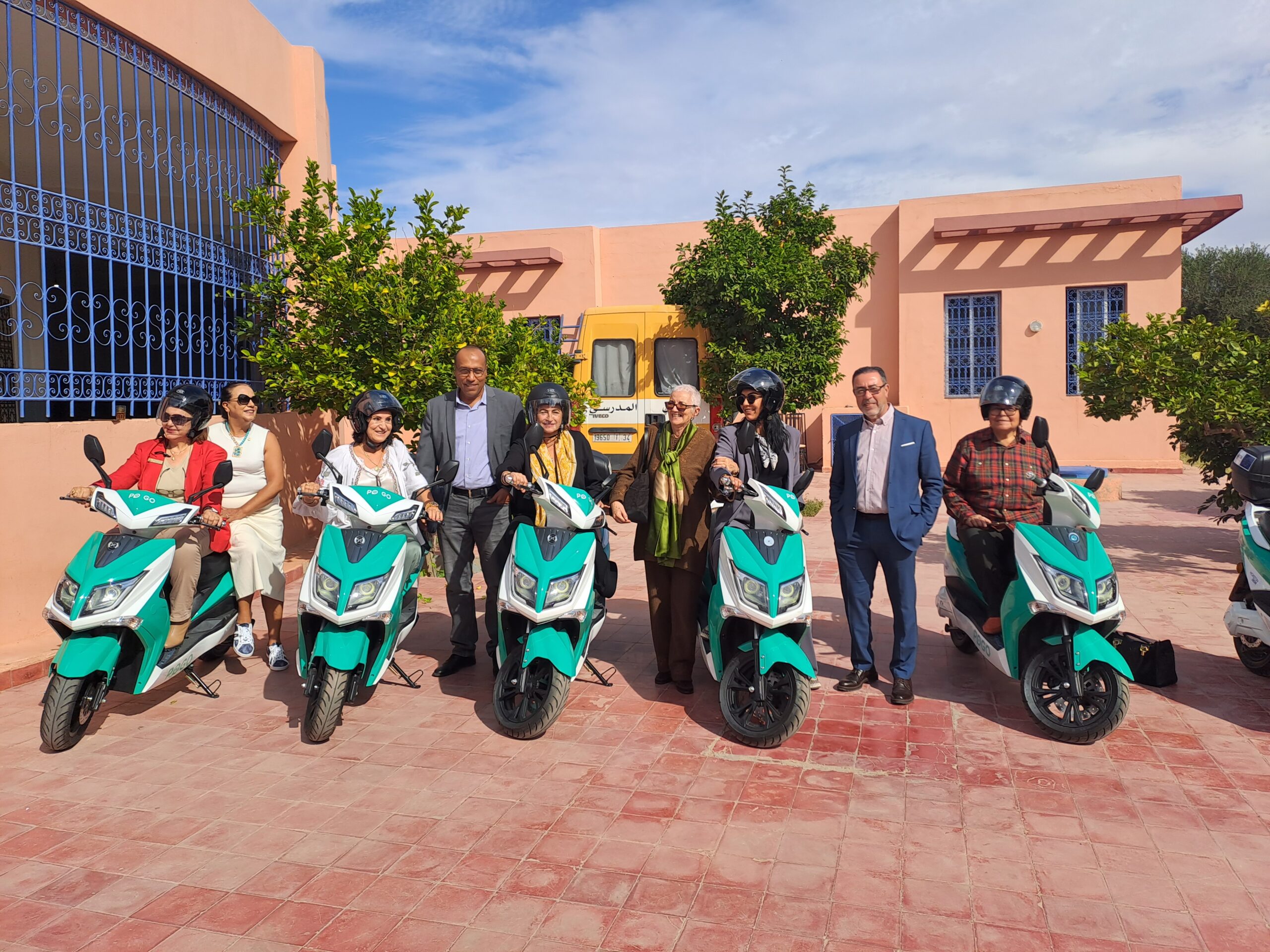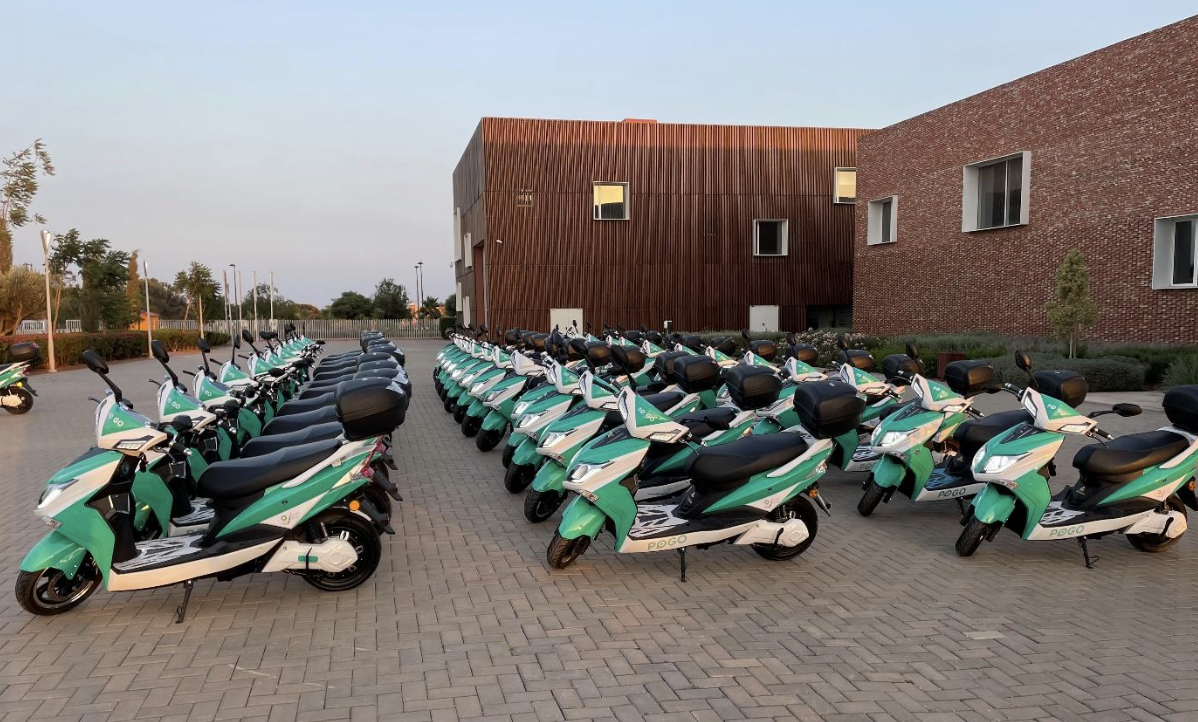Morocco Living Lab


Living lab description
At the Dar Ettalliba student residence halls, which is located in the city of Marrakech, the ultimate goal of this urban demonstrator is to operate twenty-seven bikes for female students from the surrounding area and to also create a business model for a micromobility sharing solution with forty e-bikes.
The primary objectives are to promote and introduce electric mobility as a sustainable alternative to motorcycles, with a particular emphasis on targeting various user groups, especially female users. Additionally, the intention is to collaborate with Dar Ettaliba, a non-governmental organization that provides accommodation, meals, and other essential services to female university students from economically disadvantaged rural and isolated regions. In addition, the demonstration’s sustainability is backed by a private company that executed the business model.
Living lab activities
- Technical assessment for the identification of e-mopeds suitable for the purpose of the living lab
- Insurance assessment for a sharing solution activity
- Legal and administrative works to have the right to begin the activity, authorizations and legal documents prepared.
- Optimal dispatching of the fleet for maximum generation taking into consideration the social aspect meaning the 7 e-mopeds which are used by female students from rural regions and hosted in Dar Attaliba
- Data collection and KPIs tracking
- Evaluation of replication opportunity in Morocco and maximizing the generation of the fleet by transferring 3 e-mopeds to Fez, 7 to Agadir and 3 to Benguerir, besides having 27 operational in Marrakech city
Description of the problem addressed
The primary issue being addressed in the Morocco Living Lab is the deficiency of dependable public transit networks, which are occasionally inaccessible and frequently lacking punctuality. In addition, the Living Lab is making efforts to reduce the significant carbon footprint of the transportation sector in Morocco, which is now recognized as the second largest emitter of carbon dioxide in the country.
The pricing plan is tailored to the specific needs and preferences of the Moroccan customers and is based on the duration of moped usage, with charges applied per minute. The clients are billed at a rate of 0.99 MAD per minute, which is a highly competitive pricing compared to other fares in the Moroccan public transit system.
Living Lab objectives
1
Lack of reliable public transport.
2
High carbon footprint of the transportation field.
3
Transportation access to female students with low revenues.

Technology being tested
The purpose of this Living Lab is to pilot the vehicles for transportation of passengers named as a sharing solution service and it’s open to public at a fee via a dedicated app for booking and payments of rides. The current fee that passengers are paying for each minute of transportation within Marrakech city, Agadir, Fez or Benguerir is 0.99 EUR per minutes driven and 0.2 EUR per minutes of parking the vehicle. The price per trip for the passenger micro-electric vehicles is competitive taking into consideration that the only cheaper way of transportations are the buses that take so long for the user to get to the desired destination.
The Living Lab is utilizing the POGO service to improve the user experience in a densely populated city with a significant tourism industry, as well as the highest concentration of cars and motorcycles in a Moroccan city. This aims to facilitate the integration of environmentally friendly transportation options. One of the primary goals is to address the various issues associated with densely populated cities, such as reducing waiting times for public transit, improving service quality, and enhancing reliability.
Number of assets

E-mopeds
40

Helmets
40

IOT Hubs
40 (integrated in the electrical bikes)


